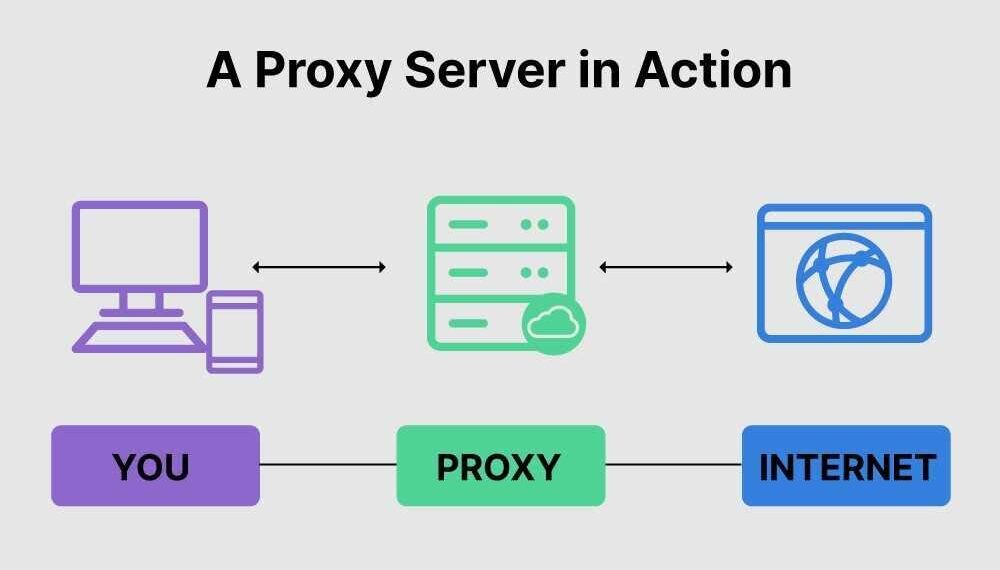Browsing the web every day can become a little less private. Basically, apps and websites monitor everything you do, which compels more and more users to find ways to retain their privacy.
The proxy servers are one of the best options for using to protect your identity when browsing. However, they even offer many other benefits, all of them you would explore further in this article.
What are proxy servers and why you want to use one?
When browsing the web, your computer will connect to a remote server that sends back the information to it. In that connection, proxy servers act as a middleman. Your app or client connects to a proxy that relays your request further to their ultimate destination.
The best part is – when the proxy servers process your requests, they hide a lot of identifying information that includes your original IP address, from where did the actual request come from, OS (Operating Systems) data, and more. In short, it helps to prevent third parties from easily tracking you.
One important thing you must understand is that a proxy server works at the application level. For instance, you could connect at the proxy server’s address through the browser that protects you when browsing.
However, remember that the proxy server will not cover your other tracks in several applications unless they are even connected to it. This would give you more granular control, the way you generally access the web, but it would even make it difficult to get ‘full’ privacy (when these things even exist).
Who must use proxy servers?
In most cases, if you are planning to use a proxy server, it must be a premium service. If it is possible for you, look into setting up your proxy server (that often needs some experience of system administration) or at the most, make sure you are using a reputed service.
When you talk about premium proxy servers, there are several options that range from business-focussed to personal solutions.
3 Types of common proxy servers are:
There are many types of proxy servers to select from. The most well-known is called an ‘open’ proxy server, that is what most of people often think if they talk about proxies.
- Forward proxy server: Different companies and some institutions rely on using the proxy server route to provide connections internally so that can connect with the outside world. This type of forwarding proxy server finds whether or not you could access specific services or websites that help to keep networks secure.
- Open proxy: Such proxies do not need authentication and are primarily public. It means that when you could use one for maximum anonymity, your data could not be safe from a person who controls that particular server.
- Reverse proxy server: These servers help filter all incoming requests to your sites that help with caching and privacy, among other several things.
You will come across dozens of open proxy services all around the web. They are generally free, and they even enable you to either connect directly through a browser or use an IP address. A few even provide extensions so that you can always keep them pretty active when surfing the web.
A premium proxy server could be a brilliant investment if you require:
- Protection of your network from malware
- Regular access of geo-restricted content
- Log web traffic to make sure no one misuses company resources
- Enforcement of web policies so as to prevent team members to access inappropriate or dangerous websites
Again, it is important to remember that proxy servers never encrypt traffic. When your primary concern is protecting sensitive data, it is better to look into a VPN. Proxy servers are an excellent and valuable tool that can help you circumvent restrictions on various regions and retain your privacy. The free proxy servers are not the best solution if you need to protect your critical data, just like other online services.
The best site to choose proxy servers is thepirateproxybay. When you download torrents through the pirate bay proxy’s sites, you are also welcomed in the community as you would be supporting a peer-to-peer sharing (P2P) file-sharing network which uses an honor code.


























